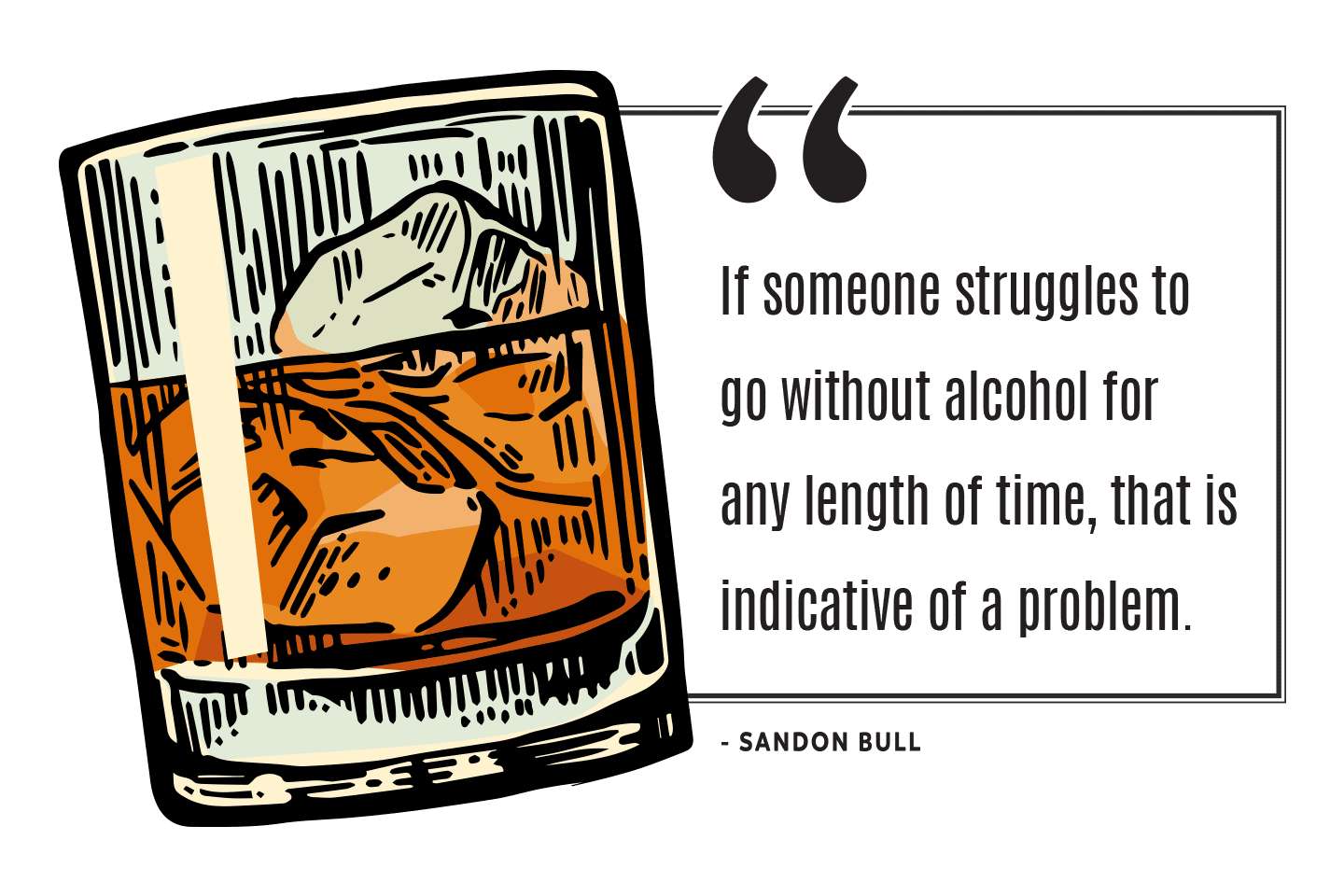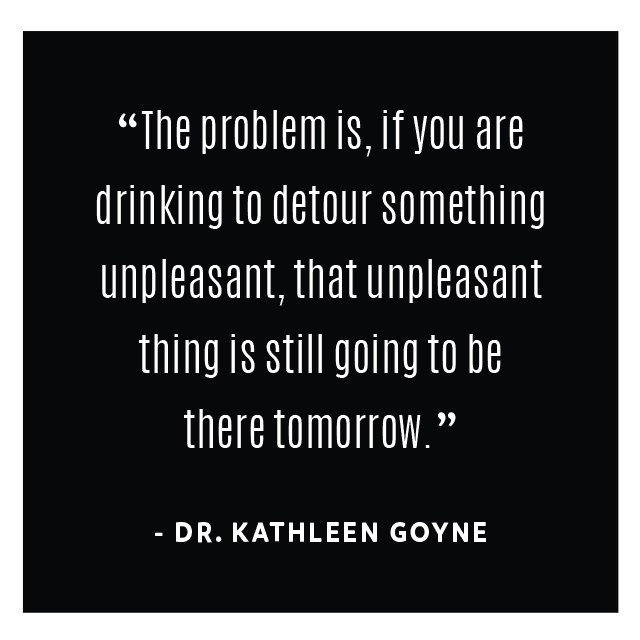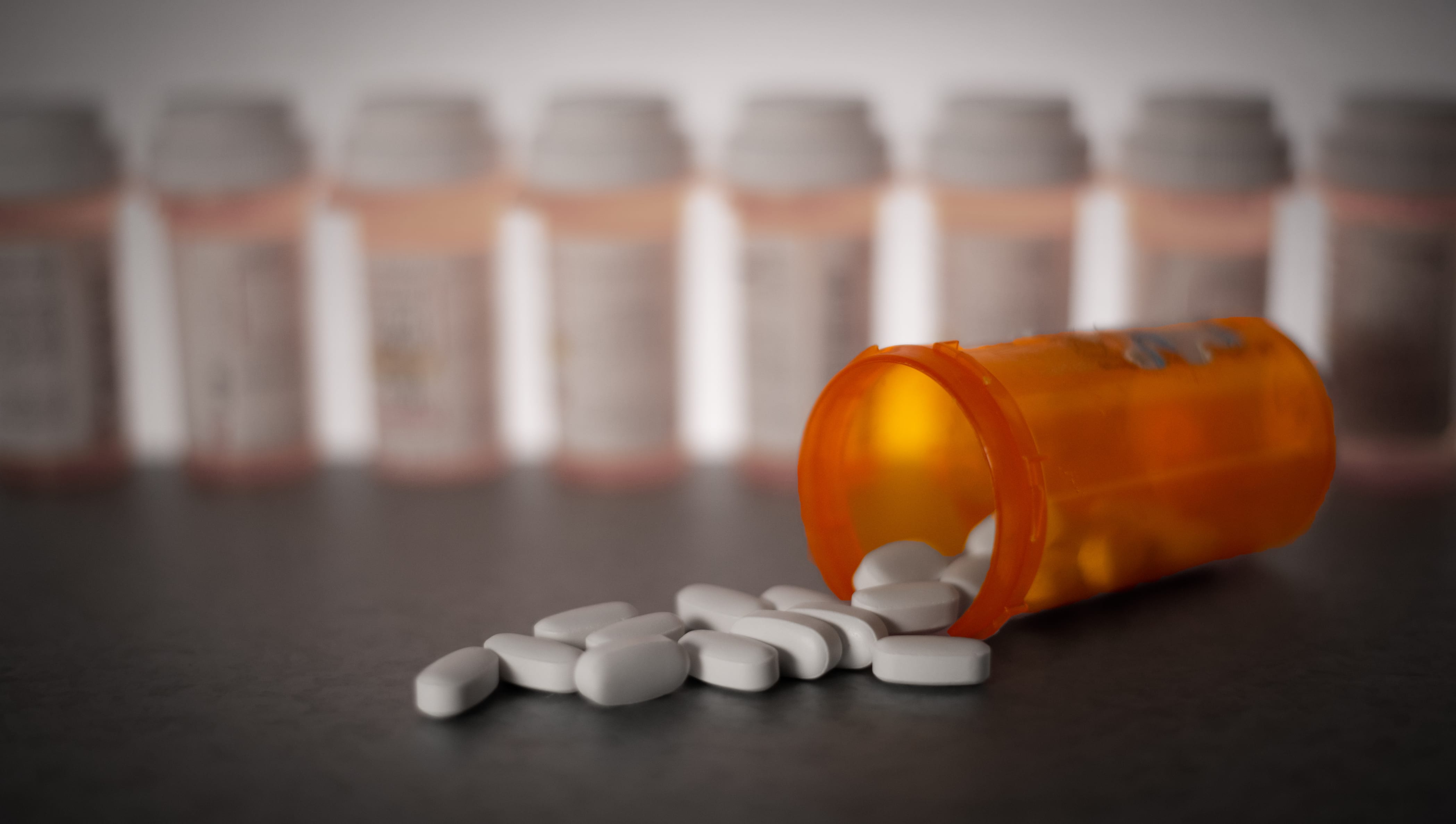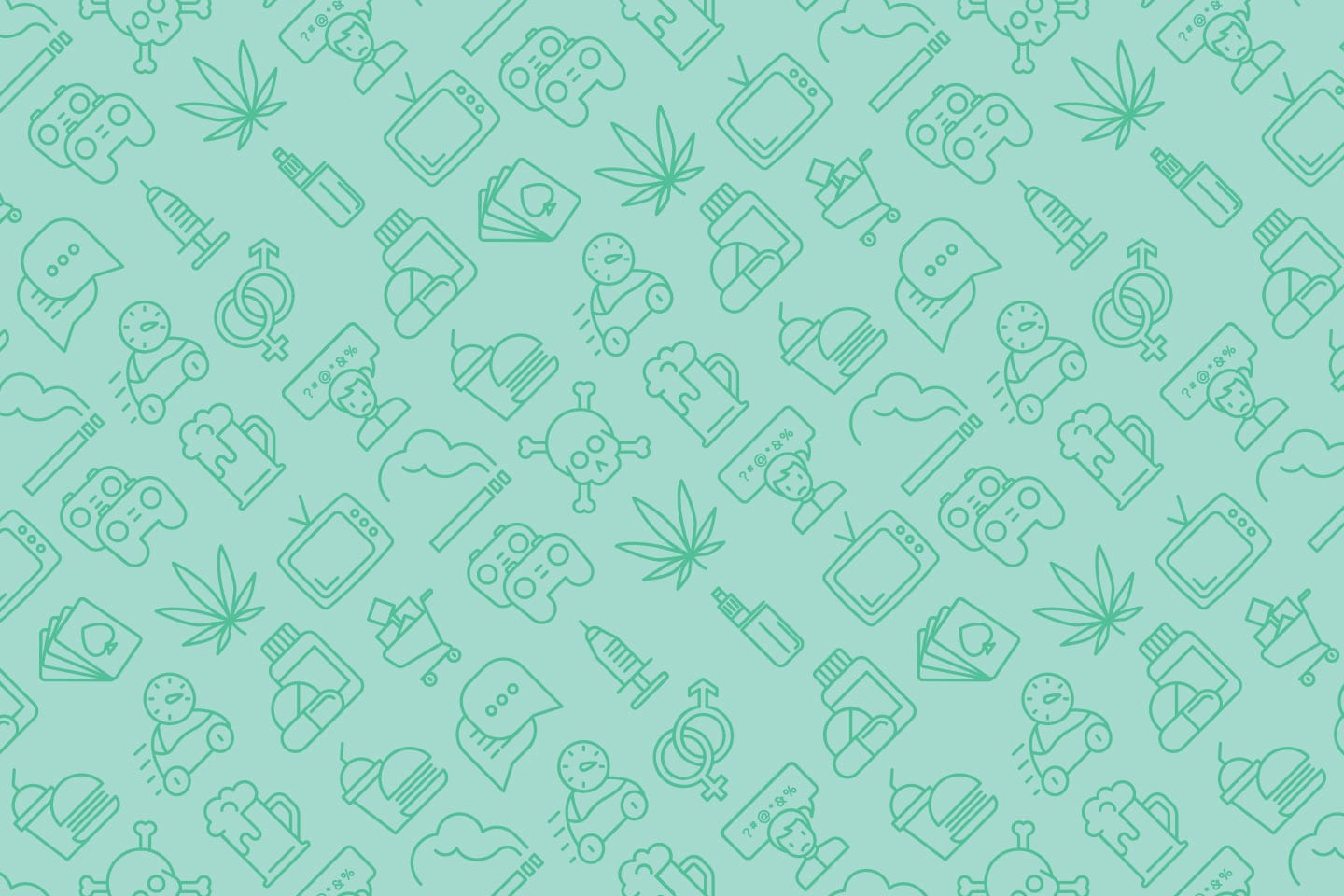How Much Is Too Much Drinking
When life throws stress and problems our way, many of us enjoy the comfort of a glass of wine or a few beers. But no matter how normal or moderate we believe our drinking habits may be, the line between habit and dependency is easily blurred.
Subtle signs of self-medicating, or the use of substances to cope with life’s challenges, may sneak into your drinking tendencies. If you are prone to stress and anxiety and you drink, be mindful of these warning signs that could indicate a growing reliance. By practicing self-awareness, you can safeguard your emotional and physical health without sacrificing your lifestyle.
By Rhett Bentley



1. You think about drinking all day.
If you’re constantly fixated on the thought of alcohol throughout the day, it could be a sign that you drink too much. Distraction from work, even if it doesn’t affect your performance, indicates that alcohol has become a priority in your routine. Of course, you may be able to refuse a drink in this moment, but consistently thinking about alcohol may signify that it’s time to reevaluate your habits. “If someone struggles to go without alcohol for any length of time, that is indicative of a problem,” says Sandon Bull, social worker at Parkridge Valley Hospital.
2. You tend to drink alone.
A solo glass of wine after a tense day at work, or maybe a crisp beer after mowing the lawn, is not problematic. There’s something intentional and relaxing about that private moment. However, if you’re frequently drinking alone and at odd times of the day, your drinking may have become an aimless habit, without the intention of socializing. Many people who drink by themselves struggle with personal issues and are ashamed for others to see. If you think your friends will disapprove of your habit, you might keep them at a distance, indicating an unhealthy relationship with alcohol.
3. You drink to cope with certain feelings.
Many people who suffer with undiagnosed mental health issues such as anxiety or depression resort to using alcohol to relax or “take the edge off.” In the medical field, this is known as self-medicating: consistently using substances, such as alcohol, to cope with difficult situations or emotions (as opposed to seeking professional help). By “treating” your woes with alcohol, you affix a temporary Band-Aid that may eventually spiral into dependency. “In my current position working with people with substance abuse issues, I see many people who start using alcohol to treat anxiety, get themselves to sleep, or even lessen racing thoughts, hallucinations and/or other mental health issues,” says Bull.


4. You still feel down regardless.
Alcohol only provides temporary relief from pain and anxiety. When the effect wears off, the reality of these feelings is often worse. Though it initially alleviates symptoms of anxiety and depression, it compounds these problems over time. “The problem is, if you are drinking to detour something unpleasant, that unpleasant thing is still going to be there tomorrow,” says Dr. Kathleen Goyne, psychiatrist at Tennova Behavioral Health Services. “And then if you continue to drink tomorrow, you’ll have two days of anxiety to process. Most of us do best if we process life one day at a time.”



5. It takes a lot to get buzzed.
Over time as you consume more alcohol, your body adapts by producing more enzymes to break it down in your bloodstream. This is known as building a tolerance. As your tolerance increases, so too does your risk for alcohol dependence, as it takes considerably more drinks for you to feel that warm, out-of-focus sensation. “High tolerance is kind-of like a Trojan Horse,” explains Dr. Goyne. “People think: this doesn’t affect me, so it can’t be a very big deal. And before they know it, it does affect them.”
6. You use it to feel relaxed.
We’re all familiar with the concept of using liquid courage to make it through a potentially awkward gathering. However, if you’re shy or have low confidence, be wary of “pre-gaming” before social engagements, as it can become an unhealthy crutch. According to the Anxiety and Depression Association of America, there is a distinct link between alcohol dependence and social anxiety. In fact, 15 million Americans have social anxiety disorder, and the use of alcohol to cope with the symptoms is quite common. “Anytime someone feels they need alcohol or can’t imagine attending certain events without drinking, it’s problematic,” says Bull.



The Problem With “Taking the Edge Off”
When alcohol becomes a primary way of coping with anxiety, pain, stress, or sadness, a dangerous cycle may begin. As you continue to use drinks to help you feel more confident, less worried, or more in control, the less equipped you may become to cope with negative emotions in healthier ways. “We become dependent on alcohol to manage our internal world,” says Dr. Chris Harris, program director at Focus Treatment Centers.
As your habit grows, the healthy coping skills you once possessed may wither away from lack of use. Instead of looking to friends, hobbies, exercise, or other outlets for emotional release, you may begin to look to alcohol as the solution to more of life’s difficulties. “The more the person drinks to improve their mood, the more the relationship with alcohol begins to take on a whole new meaning,” says Dr. Harris. “This attempt to self-soothe can quickly turn into dependency.”
Meanwhile, your existing emotional struggle, left untreated, may get worse. “I regularly see people who began using alcohol to treat mild anxiety but then it progressed to extreme anxiety which, in turn, made it more difficult to stop using alcohol,” says Bull. “It becomes a cycle they can easily get trapped in.”
Some may start to wonder if their alcohol use is becoming a problem, but aren’t ready to face it. They may even begin to hide the truth from themselves or others. But eventually, the dependency worsens, the anxiety worsens, and the person is faced with growing shame. This pain continues the need to be medicated. The alcohol use increases, the pain and shame increase, and behaviors to conceal the drinking increase. Finally, addiction develops and the cycle is repeated over and over.



Reaching Out
If you’re reading this and it sounds all too familiar, be encouraged: you’re not alone. Help is available, but it may require courage. “Reaching out can be really scary,” says Dr. Goyne. “I think the most important thing you can do is connect to another person you know is safe. Often, we don’t select well who to connect with. It’s very important to look for warmth in another person – someone who will listen and truly care.”
If you don’t know where to start, consider confiding in your primary care provider, who can refer you to an appropriate health care provider, such as a psychiatrist, social worker, or addiction specialist. Be honest that you are attempting to medicate an issue with alcohol, ask them about their concerns, and discuss all options for treatment. Remember: some people can stop drinking on their own, while others need medical support to withdraw from alcohol safely. The right option for you will depend on the amount you are drinking, the length of time you have been drinking,
and other health conditions that may be present.
No matter who you choose to speak to, don’t try to go it alone. As you begin your journey to recovery, having a strong support network will be key to your success. “Seeking help to create alternative coping skills is an essential step,” says Dr. Harris. “Talk with your doctor or a counselor to determine your needs, and seek support from family members, friends, counselors, recovering alcoholics, and people from your faith community.”
The good news is, there are many reputable treatment programs standing by 24/7 to help. The road to healthier habits is only one phone call away
See Related Articles










